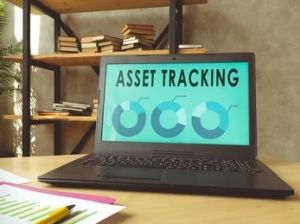
Asset tracking is becoming increasingly important in Lagos as businesses and organizations strive to manage their assets more efficiently. With the rise of technology, asset tracking has become easier and more accessible, making it an essential tool for businesses looking to stay competitive in the ever-evolving Lagos market. In this blog post, we will explore the importance of asset tracking and how it can benefit businesses of all sizes in Lagos.
What is Asset tracking?
Asset tracking is the process of monitoring and managing physical assets within an organization. It involves the use of technology to track the location, movement, and usage of assets such as equipment, vehicles, and inventory. This is an essential tool for businesses, as it enables them to monitor and manage their assets effectively.
The Challenges of Asset Management in Lagos
Asset management is challenging in Lagos due to various factors such as poor infrastructure, traffic congestion, and security concerns. These challenges can result in inefficient inventory management, lost or stolen assets, and increased operational costs. Poor asset management can have a significant impact on businesses in Lagos, leading to reduced productivity, increased downtime, and a loss of revenue.
The Benefits of Asset Tracking in Lagos
Asset tracking offers several benefits to businesses in Lagos, including
- Increased efficiency and productivity
Asset tracking enables businesses to use their assets very well, therefore reducing downtime. This leads to increased efficiency and productivity, allowing them to deliver products and services faster and more efficiently.
- Better decision-making
Asset tracking provides businesses with valuable insights into asset usage, enabling them to make informed decisions about asset deployment, maintenance, and replacement. This leads to better decision-making and cost savings in the long run.
- Enhanced security and theft prevention
Asset tracking also enables businesses to monitor the location and movement of their assets in real-time, providing them with valuable insights into how the asset is being used and its availability. It also helps reduce the risk of theft and improve security.
Implementing asset tracking in Lagos
Implementing an asset tracking system in Lagos requires careful planning and execution. The following are the steps involved in implementing an asset tracking system:
- Define your asset tracking needs and objectives.
- Choose the right technology for your needs.
- Install and configure the asset tracking system.
- Employees should be trained on how to effectively use the system.
- Establish best practices for asset tracking and management.
- Monitor and maintain the system.
Best practices for implementing an asset tracking system include involving stakeholders in the planning process, establishing clear communication channels, testing the system before deployment, and providing ongoing support and training.
Asset tracking is an important part of any business, and it’s something that you should consider implementing as soon as possible. By doing so, you’ll be able to get a better idea of where your money is going and what assets are worth keeping soon as possible. This will help you make more informed decisions about whether or not certain purchases are worthwhile investments in the long run.

